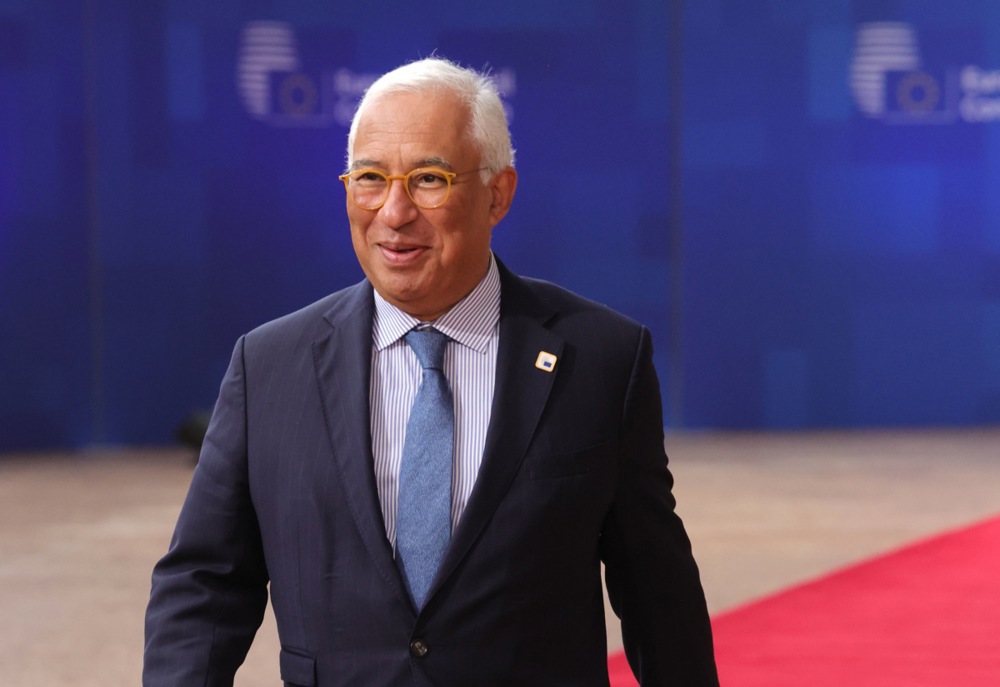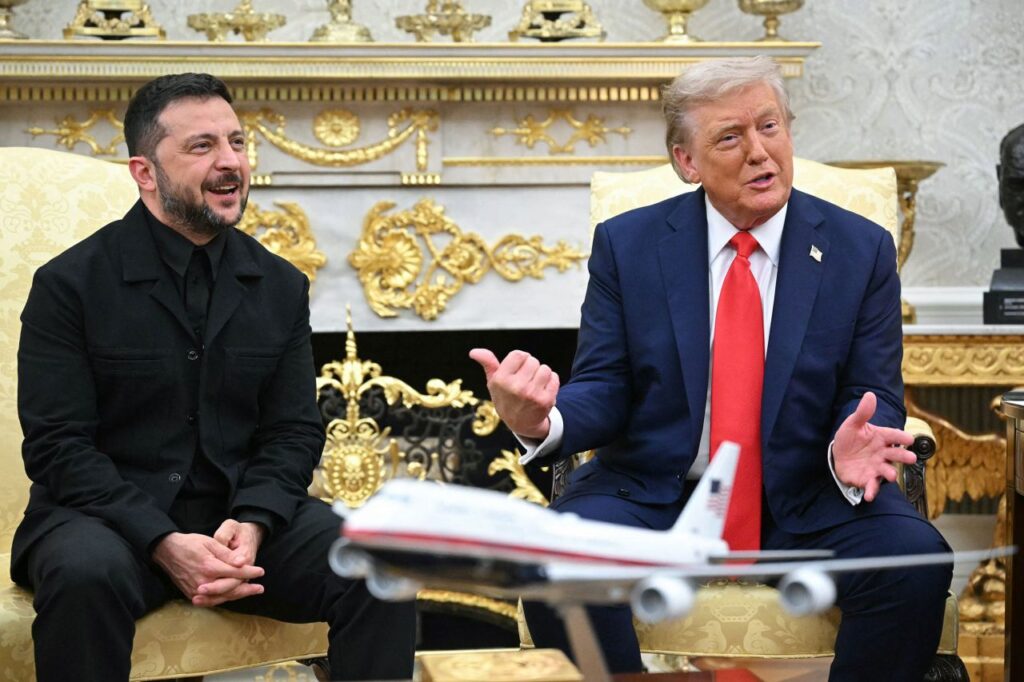George Mason’s President, Gregory Washington, Will Not Apologize to the Trump Administration

© Michael A. McCoy for The New York Times


© Michael A. McCoy for The New York Times


European Council President António Costa announced that Brussels has begun work on a new sanctions package against Russia, with a European delegation traveling to Washington to coordinate with American partners, Interfax-Ukraine reported on 5 September.
During his visit to Uzhhorod, Costa emphasized the need to increase sanctions pressure to force Russia to end the war. “We are working with the US and other partners to strengthen our pressure through further sanctions, direct sanctions and secondary sanctions,” he said. “More economic measures to force Russia to stop this war, stop killing people, stop this war in Ukraine.”
The European Council President confirmed that coordination efforts are already underway. “In Brussels, work on a new sanctions package is beginning, and our European team is heading to Washington to work with our American friends,” Costa said.
Costa also addressed Ukraine’s EU membership prospects during his visit. “It is clear that Ukraine’s membership in the European Union is not only the best security guarantee, it is also the most effective path to prosperity and a better future for Ukrainians,” he said.
The EU official praised Ukraine’s reform efforts despite ongoing hostilities. “We are impressed by the reforms that Ukraine is carrying out despite the war,” Costa said, adding that the bloc supports Ukraine “in your struggle in this war as it continues” and “in efforts aimed at achieving peace, in peace negotiations.”
According to Costa, the EU also backs “your future as a full member of the European Union.”
The announcement comes after High Representative for Foreign Affairs Kaja Kallas previously outlined potential components of the 19th sanctions package against Russia. The EU is reportedly considering implementing secondary sanctions to prevent third countries from helping Russia circumvent existing restrictions.


© Haiyun Jiang/The New York Times


© Kenny Holston/The New York Times


© Tom Brenner/The New York Times


Ukrainian President Volodymyr Zelenskyy met US President Donald Trump in Washington on 18 August, backed by a delegation of European leaders urging Trump to support Ukraine with ironclad postwar security guarantees. Their talks focused on ending the war with Russia, but without letting Moscow dictate terms. While Trump said the US would provide “very good protection” to Ukraine, he avoided detailing what that meant. Crucially, he refused to rule out sending US troops—leaving open the possibility of deeper military involvement as part of the proposed Article 5-like protection framework.
The New York Times reports that European leaders accompanied Zelenskyy to the White House to present coordinated red lines:
According to NYT, President Trump did not explicitly reject these demands but emphasized he is focused on a “permanent solution” rather than a fragile agreement that could collapse into renewed war “two years from now.”
He declined to say whether he would support sending US peacekeepers to Ukraine. Instead, he said, “There’s going to be a lot of help,” and added that he would discuss the issue further with European leaders after his meetings.
CNN noted that Steve Witkoff, Trump’s special envoy, previously described the proposed security terms as “Article 5-like protections,” referencing the NATO clause on collective defense. That framing implies US involvement in Ukrainian security without granting NATO membership.
When asked what kind of security guarantees Ukraine needed, Zelenskyy replied:
“Everything.”
Speaking in the Oval Office alongside Trump, he explained that this includes two essential components: military power—meaning weapons, people, training missions, and intelligence—and support from major countries like the United States, CNN says.
He stressed that any settlement without these elements would allow Russia to regroup and eventually attack again. CNN quotes Zelenskyy as saying the guarantees “depend on the big countries, on the United States, on a lot of our friends.”
Trump did not challenge that assessment, but offered no details about what kind of American commitment he would consider.
President Trump said he would be calling Russian President Vladimir Putin directly after concluding his meetings with Zelenskyy and European leaders.
“I just spoke to President Putin indirectly, and we’re going to have a phone call right after these meetings today,” Trump said from the Oval Office, CNBC reports.
He added that such a call could lead to a trilateral conversation involving Ukraine, Russia, and the US.
“There’s a good chance of maybe ending” the war, Trump said. But he also left open the alternative: “If not, then the fighting continues.”
Although Trump has kept his base wary of foreign entanglements, The New York Times notes that he did not rule out US troop deployment, a position likely to trigger backlash. During his campaign, he had promised to reduce American involvement in foreign conflicts. Nonetheless, his current posture leaves room for some level of military commitment.
CNN reports that Trump stated on 18 August that offering Ukraine security guarantees is still under discussion among the US and European leaders. He said:
“We’re going to be discussing it today, but we will give them very good protection, very good security.”